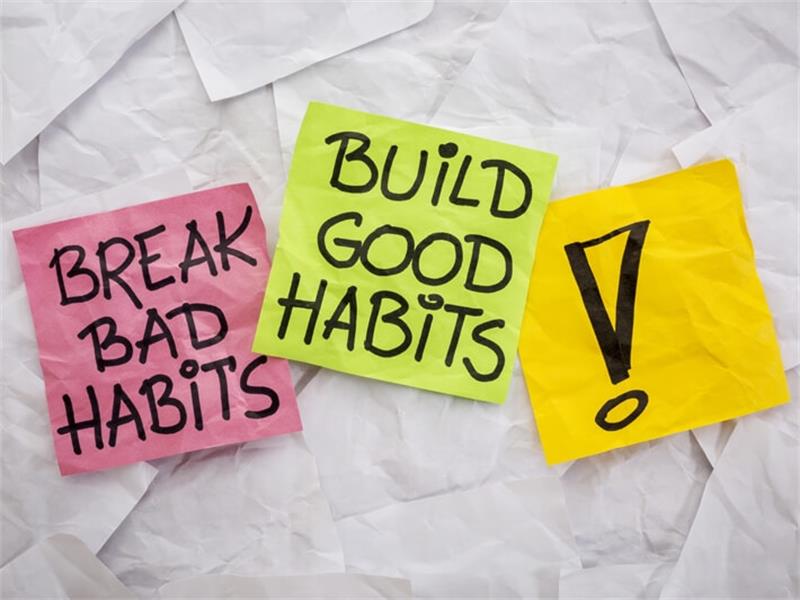Contents
Introduction
Do you ever find yourself feeling sluggish or exhausted throughout the day? Chances are, you’re not alone.
With our busy and often stressful lifestyles, it’s common to experience a dip in energy levels from time to time. But did you know that low energy levels can impact not only your productivity but also your overall health and well-being?
That’s right! Low energy levels can lead to decreased motivation and increased stress levels, which in turn can have a negative impact on your immune system and ability to fight off illness.
That’s why it’s essential to take steps to boost your energy naturally. In this article, we’ll explore some of the most effective ways to increase your energy levels without relying on caffeine or other stimulants.
From getting enough sleep to eating a balanced diet and incorporating natural supplements, we’ll provide all the tools you need for optimal health and vitality. So let’s get started!
Get Enough Sleep
The Importance of Sleep for Energy Levels
It’s no secret that sleep is crucial for your physical and mental health. But did you know that it’s also essential for maintaining a high level of energy throughout the day? When you sleep, your body uses that time to restore and repair itself.
This includes repairing muscles, consolidating memories, and regulating hormones. Without enough sleep, your body doesn’t have a chance to fully recover from the day before.
This can lead to physical fatigue, mental fogginess, and a general feeling of sluggishness. Additionally, lack of sleep can also affect your mood and emotional well-being.
It has been linked to increased levels of anxiety and depression as well as decreased satisfaction with life in general. These factors can all contribute to decreased energy levels.
Tips for Getting Better Quality Sleep
Getting enough sleep is one thing, but getting quality sleep is another story entirely. Here are some tips for improving the quality of your slumber:
1) Stick to a schedule – Try to go to bed at the same time every night and wake up at the same time each morning. 2) Create a relaxing bedtime routine – Whether it’s taking a warm bath or reading a book, find activities that calm you down before bed.
3) Keep it cool – Your bedroom should be cool (around 68°F) in order to promote good quality sleep. 4) Limit screen time before bed – The blue light emitted by electronic devices can interfere with natural circadian rhythms. By following these tips, you’ll be able to get more restful sleep which will ultimately lead to higher energy levels throughout the day!
Exercise Regularly
In addition to a healthy diet, regular exercise is crucial for maintaining high energy levels. While it may seem counterintuitive that exerting energy will increase it, studies have shown that physical activity actually boosts energy and reduces fatigue. Exercise delivers oxygen and nutrients to your tissues, helping your cardiovascular system work more efficiently and improving your overall endurance.
How exercise can increase energy levels
Exercise provides numerous benefits that can help increase energy levels. For one, it helps promote better sleep, which is essential for maintaining high levels of daily energy. Exercise also helps keep muscles strong and increases endurance, which can make daily tasks easier to manage and leave you feeling less fatigued throughout the day.
Beyond the physical benefits, regular exercise has also been shown to improve mental health and reduce stress levels – two factors that can directly impact your overall sense of well-being. When you feel good mentally and emotionally, you’re much more likely to feel energized physically as well.
Different types of exercise and their benefits
When it comes to choosing an exercise routine, there are countless options available – from running or cycling outdoors to weightlifting or yoga at home. The key is finding something you enjoy doing so that you’ll be more likely to stick with it in the long run. Aerobic exercises like running or swimming are great for boosting both heart rate and metabolism, helping deliver more oxygen throughout the body.
Strength training like weightlifting or bodyweight exercises helps build muscle mass which in turn leads to increased endurance and stamina throughout the day. Low-impact exercises like yoga or pilates can be gentle on the joints while still providing numerous physical benefits such as improved flexibility or better posture – both of which can lead directly to higher energy levels.
Ultimately, any type of exercise that gets your heart pumping and moves your body is beneficial for boosting energy levels. Whether it’s going for a morning walk or hitting the gym after work, incorporating regular physical activity into your routine is one of the best things you can do for maintaining high energy levels throughout the day.
Eat a Balanced Diet
It is common knowledge that proper nutrition plays a vital role in keeping us healthy and energized. The food we consume acts as fuel for our body, providing the necessary nutrients that help us function optimally throughout the day.
A balanced diet is one that includes all the essential macronutrients like carbohydrates, proteins, and fats along with vitamins and minerals. Consuming a well-rounded diet ensures that we have enough energy to sustain us throughout the day while keeping us in good health.
Importance of nutrition for energy levels
The foods we eat directly impact our energy levels. Certain nutrients play a critical role in maintaining optimal energy levels.
Carbohydrates provide glucose, which is a primary source of fuel for the body. Proteins help repair tissues and build muscles, while fats aid in absorbing certain vitamins and minerals essential to produce energy.
When we eat an imbalanced diet or skip meals altogether, it impacts our overall health and leaves us feeling fatigued and sluggish. Nutrient deficiencies can cause persistent feelings of exhaustion, making it difficult to stay focused or function productively on daily tasks.
Foods to eat and avoid for sustained energy
To maintain sustained energy levels throughout the day, it’s important to consume foods that are rich in complex carbohydrates such as whole grains, vegetables like sweet potatoes or butternut squash, legumes such as chickpeas or lentils along with lean protein sources like chicken breast or tofu. Avoiding processed foods high in sugar will also help stabilize blood sugar levels which are crucial in maintaining sustained energy levels throughout the day.
Consuming nutrient-rich food is essential to leading a healthy lifestyle filled with vitality & vigor. By including ample servings of fruits & vegetables in your meals alongside whole grains, legumes, and lean protein sources you can ensure that you remain energetic & productive all through the day.
Stay Hydrated
The role of water in maintaining energy levels
We all know that staying hydrated is important for our overall health, but did you know that it also plays a crucial role in maintaining our energy levels? Dehydration can cause fatigue and sluggishness, making it difficult to stay focused and productive throughout the day. This is because water helps to regulate bodily functions such as temperature control, digestion, and circulation.
Without enough water, these processes become less efficient and can result in feelings of tiredness. In addition to its basic physiological functions, water also helps to transport nutrients throughout the body.
This means that if you’re not drinking enough water, your cells may not be getting the nutrients they need to produce energy efficiently. To ensure optimal energy levels, it’s essential to drink plenty of fluids throughout the day.
Tips for staying hydrated throughout the day
Unfortunately, many of us find it challenging to drink enough water each day. If you’re struggling with this issue, try incorporating some of these simple tips into your routine:
– Carry a reusable water bottle with you at all times: Having a water bottle on hand makes it easy to stay hydrated while on the go. – Set reminders: Use an app or phone alarm to remind yourself to drink water at regular intervals throughout the day.
– Drink herbal tea: Herbal tea can be a great way to stay hydrated while also adding flavor and variety to your fluid intake. – Eat hydrating foods: Many fruits and vegetables are high in water content and can help contribute towards your daily fluid needs.
– Avoid sugary drinks: Soft drinks or fruit juices may seem like an easy way to quench your thirst, but they are often high in sugar which can lead to crashes in energy levels later on. By making small changes like these over time, you’ll gradually start developing healthy hydration habits that will help keep your energy levels up throughout the day.
Manage Stress
Stress can have a major impact on our energy levels. When we’re stressed, our bodies release cortisol, which can cause fatigue and a decrease in energy levels. That’s why it’s important to manage stress in order to maintain optimal energy throughout the day.
How Stress Affects Energy Levels
Stressful situations activate the body’s “fight or flight” response, which can lead to an increase in heart rate and blood pressure. While this response can be helpful in certain situations, prolonged exposure to stressors can lead to chronic stress and depletion of energy reserves.
In addition, stress can also interfere with sleep quality, which is essential for restoring energy levels. Chronic stress has been linked to insomnia and other sleep disorders that can cause daytime fatigue and lower overall energy.
Techniques to Reduce Stress and Increase Relaxation
There are many techniques that can help reduce stress and increase relaxation. One effective method is practicing mindfulness meditation.
This involves focusing on present-moment awareness without judgment or distraction. It helps reduce cortisol levels and improve resilience against future stressors.
Another useful technique is progressive muscle relaxation, where you tense individual muscle groups for a few seconds before releasing them while taking deep breaths. This helps reduce physical tension caused by stress, increasing relaxation throughout the body.
Incorporating regular exercise into your routine is also beneficial for reducing stress levels. Exercise releases endorphins (feel-good chemicals) that help counteract the effects of cortisol on the body while promoting better sleep quality.
Overall, managing your stress level is crucial in keeping high energy levels throughout your day. By incorporating techniques such as mindfulness meditation, progressive muscle relaxation or regular exercise into your daily routine you’ll likely see an improvement not only physically but mentally as well.
Incorporate Natural Supplements
Overview of natural supplements that can boost energy
While it’s important to try to get all of the nutrients you need from a healthy diet, sometimes incorporating natural supplements can help give you an extra boost. There are a number of different natural supplements that have been shown to increase energy levels.
One popular supplement is iron, which is important for the production of hemoglobin in red blood cells. Hemoglobin carries oxygen throughout your body and low levels of iron can lead to fatigue and sluggishness.
Another supplement to consider is magnesium, which helps regulate muscle and nerve function. If you’re feeling run down or experiencing cramps, magnesium may help.
Ginseng has been used for centuries in traditional medicine as a natural energy booster. It’s believed to work by reducing inflammation and stress in the body while also increasing circulation.
Dosage recommendations and potential side effects
While natural supplements can be helpful for boosting energy levels, it’s important to be mindful of dosage recommendations and potential side effects. Too much iron can actually be harmful, so it’s important to consult with a healthcare provider before taking iron supplements.
The recommended daily intake varies based on age and sex. Magnesium supplements are generally safe when taken at recommended doses unless you have certain medical conditions such as kidney disease or heart problems.
It’s best to stick within 350mg – 400mg per day. Ginseng has few side effects but should be avoided if pregnant or breastfeeding as there isn’t enough data about its effect on children yet.
Ginseng may also interact with blood-thinning medications causing unwanted side effects such as bleeding episodes. Overall, if considering any supplement it’s always best practice to speak with your doctor beforehand especially if you’re already taking other medication or have underlying health problems.
Conclusion
Boosting your energy levels naturally requires a holistic approach that encompasses all aspects of your lifestyle. Getting enough sleep, exercising regularly, eating a balanced diet, staying hydrated, managing stress and incorporating natural supplements can all help in maintaining sustained energy levels throughout the day. By making small changes to your routine and habits, you can significantly improve your overall well-being and productivity.
Remember that getting enough quality sleep is essential for maintaining energy levels throughout the day. Aim for 7-8 hours of sleep each night and create a bedtime routine to ensure you get the best possible rest.
Incorporate regular exercise into your routine and try different types of workouts to find what works best for you. Eating a balanced diet that includes whole foods such as fruits, vegetables, lean protein and healthy fats will give you sustained energy without the crash that comes from processed foods.
Staying hydrated is essential for maintaining good health and optimal energy levels. Carry a water bottle with you at all times to ensure that you are drinking enough water throughout the day.
Managing stress through techniques such as meditation or deep breathing can also help in increasing relaxation and reducing fatigue. Incorporating natural supplements such as ginseng or ashwagandha may boost energy levels but be sure to consult with a healthcare professional before taking any supplements.
Incorporating these tips into your daily routine can lead to an increase in productivity, better physical health and overall well-being. Remember that small changes can make a big difference in how you feel every day!













